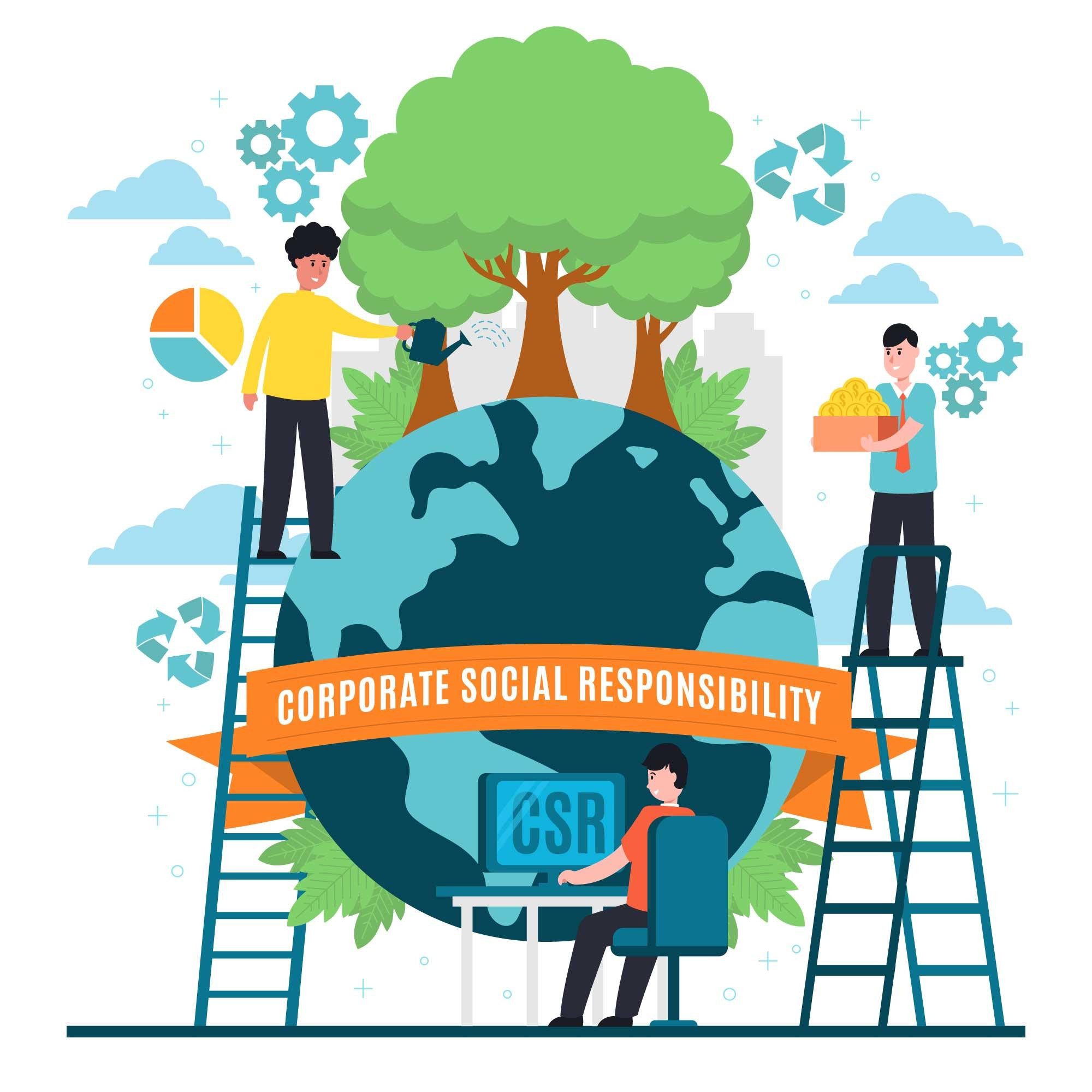
The Future of CSR in Education and Workforce Alignment
The role of corporate social responsibility (CSR) in education is evolving beyond scholarships and infrastructure support. Organizations are now focusing on workforce alignment—bridging the gap between education and employment to create a future-ready workforce. As industries transform with automation, digitalization, and evolving skill demands, CSR initiatives must align with real-world workforce needs, ensuring inclusive and sustainable impact.
Skills-First Approach: A Shift in CSR Priorities
Traditional CSR programs in education often emphasized literacy and primary education. However, the demand for industry-relevant skills has redirected focus toward employability-driven CSR initiatives. Organizations are now supporting vocational training, STEM education, digital literacy, and soft skills development. Upskilling programs, in partnership with academic institutions and industry leaders, are fostering job readiness and long-term career growth, benefiting both learners and businesses.
Technology-Driven Learning for Workforce Readiness
Corporate social responsibility for education is increasingly leveraging technology to scale impact. Digital learning platforms, AI-based adaptive learning, and virtual skill-building programs are becoming integral to CSR initiatives. Companies are investing in digital content, simulation-based learning, and interactive methodologies that enable learners to acquire industry-relevant skills efficiently. The rise of tech-enabled CSR models ensures education is accessible, engaging, and aligned with future workforce demands.
Public-Private Partnerships: Strengthening Workforce Integration
Collaboration between corporations, government bodies, and educational institutions is driving a structured approach to workforce alignment. CSR in education is now fostering apprenticeship programs, on-the-job training, and industry-academia collaboration. These partnerships are ensuring students transition seamlessly from classrooms to careers. By aligning curricula with evolving industry needs, such initiatives empower learners with market-ready skills and boost employment rates.
Inclusive CSR Initiatives: Bridging Socioeconomic Gaps
CSR programs are playing a crucial role in making quality education and workforce opportunities accessible to underprivileged communities. Scholarships, mentorship programs, and skill-building workshops tailored for marginalized groups are helping bridge the socioeconomic divide. Companies are also addressing gender disparities in education by supporting women in STEM, leadership programs, and entrepreneurship training, ensuring a diverse and equitable workforce of the future.
Sustainable Workforce Development: Beyond Job Placements
Long-term workforce alignment requires CSR strategies that go beyond immediate job placements. Continuous learning, reskilling initiatives, and career progression frameworks are now integral to CSR efforts. Organizations are setting up lifelong learning platforms, funding research on emerging skills, and creating mentorship networks that ensure sustained career growth for individuals across different career stages.
Measuring Impact: The Future of CSR in Workforce Alignment
To maximize the effectiveness of CSR initiatives, organizations are focusing on data-driven impact measurement. Advanced analytics, AI-driven assessment tools, and real-time feedback mechanisms are enabling companies to track learner progress and program effectiveness. Metrics such as employment rates, career growth trajectories, and industry absorption rates are becoming critical benchmarks for evaluating CSR success in education and workforce integration.
What Lies Ahead?
As industries continue to evolve, how can CSR in education proactively shape future workforce trends? Can businesses and educators co-create a learning ecosystem that is agile, inclusive, and responsive to the changing world of work? The future of workforce-aligned CSR depends on its ability to remain dynamic, scalable, and deeply integrated with both industry and societal needs.
FAQs
1.What skills does TeamLease EdTech Foundation emphasize for a career in
the BFSI sector?
We focus on essential skills like digital
banking, financial analysis, data security, risk management, and
customer service. Additionally, we integrate critical soft
skills training—such as ethical decision-making and
communication—to prepare candidates for BFSI’s customer-centric
and compliance-driven environment.
2.How can young professionals benefit from TeamLease EdTech Foundation’s
BFSI training programs?
Through targeted training,
mentoring, and hands-on learning experiences, our curated BFSI
programs ensure participants gain both technical and practical
skills. Our industry-aligned approach equips young professionals
to confidently enter BFSI roles with relevant, job-ready
capabilities.
3.Why is ethical training a priority in TeamLease EdTech Foundation’s
programs for BFSI?
In BFSI, handling sensitive information
and ensuring compliance is crucial. Our programs emphasize
ethical practices and integrity to foster trust and
responsibility in young professionals, helping them build
long-lasting careers rooted in reliability and accountability.
4. How does TeamLease EdTech Foundation leverage technology in BFSI
training?
We incorporate digital tools and simulated
learning environments into its BFSI training. This tech-driven
approach allows learners to gain practical experience with tools
used in banking and finance, making the transition to real-world
roles smoother and more effective.
5. How does TeamLease EdTech Foundation reach youth in underserved
communities for BFSI skilling?
By partnering with local
organizations and adopting hybrid training models, we have
expanded our reach into rural and semi-urban areas. This
inclusive approach ensures that youth from diverse backgrounds
have equitable access to BFSI skilling opportunities,
contributing to a more inclusive workforce across the sector.




